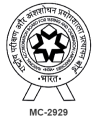Frequently Asked Questions
How should I prepare for a colonoscopy?
Preparing for a colonoscopy is essential to ensure accurate results. You will need to follow a specific diet plan leading up to the procedure, typically consuming only clear liquids the day before. Our doctors will also prescribe a laxative solution to cleanse your bowels. Its important to carefully
follow all instructions provided by our doctors to achieve the best possible outcome.
What should I bring with me to the hospital on the day of my procedure?
When coming to the hospital for your procedure, please bring a valid form of ID, insurance details,
and any paperwork related to your appointment. It is also beneficial to have a list of your current medications. Comfortable, loose-fitting clothing is recommended, and having a friend or family member accompany you is essential if you are undergoing a procedure that involves sedation.
Should I stop taking my current medications before the procedure?
This depends on the type of medication you are taking. You should inform our doctors about any medications, especially blood thinners, diabetes treatments, or supplements. Our doctors will advise you if any medications need to be paused or adjusted before the procedure to ensure safety.
What can I expect during an endoscopy?
During an endoscopy, a thin, flexible tube equipped with a light and camera is gently inserted through the mouth or rectum to allow our doctor to examine the inside of your digestive tract. You will be given a sedative to ensure comfort throughout the procedure. Most endoscopies are completed within 15 to 30 minutes, after which you will be monitored until the sedation wears off.
How long does a colonoscopy typically take?
A colonoscopy usually takes between 30 to 60 minutes. The duration may vary if additional procedures, such as polyp removal, are performed during the examination. Our doctor will discuss any findings with you after the procedure.
Will I experience any pain during the procedure?
Most patients report minimal discomfort during a colonoscopy or endoscopy due to the sedation provided. You might feel mild pressure or bloating, but these sensations typically subside shortly after the procedure.
What can I expect after a colonoscopy?
After the procedure, it is common to feel drowsy or experience mild bloating due to the air introduced into the colon. These effects usually wear off within a few hours. You will need someone to drive you home, as the sedative effects can effect for up to 24 hours. Full recovery typically occurs by the next day, allowing you to return to your usual activities.
Are there any activities I should avoid after a GI procedure?
It is best to avoid rigorous physical activity for at least 24 hours after your procedure. Light activities, such as walking, are generally safe. Our doctor will provide you with specific guidelines tailored to your procedure and overall health.
What signs should I watch for after my procedure?
While most procedures are safe, you should seek immediate medical attention if you experience severe abdominal pain, persistent bleeding, fever, or signs of infection. These symptoms are rare but should be addressed promptly.



